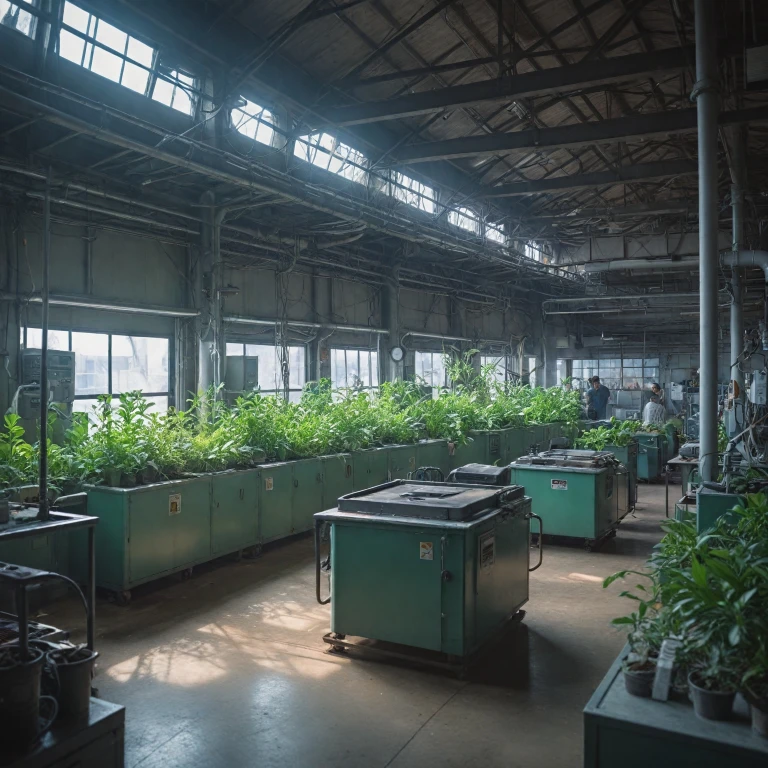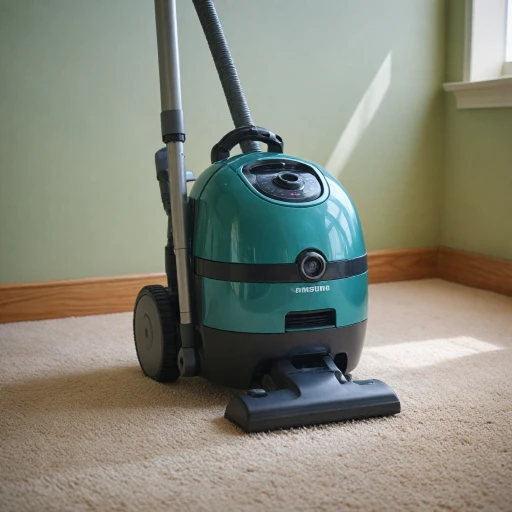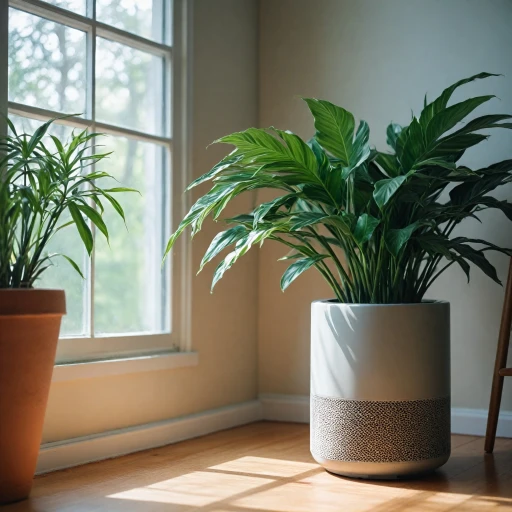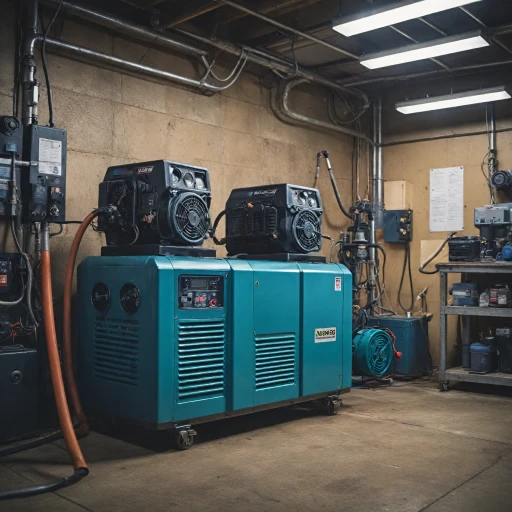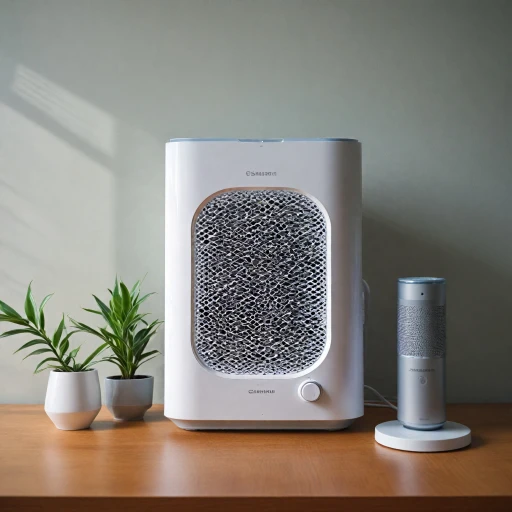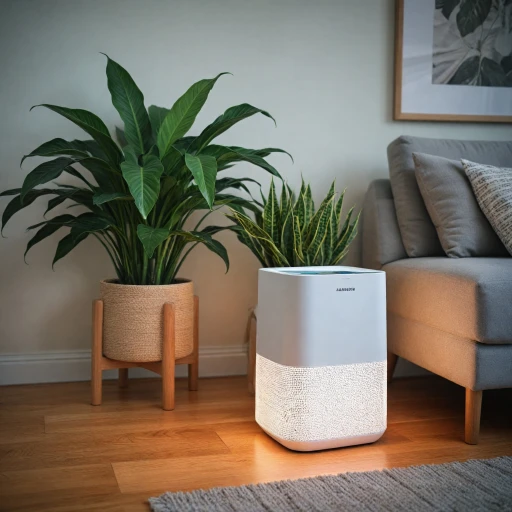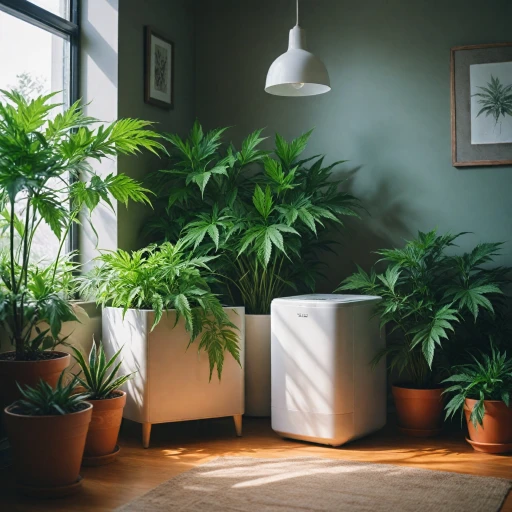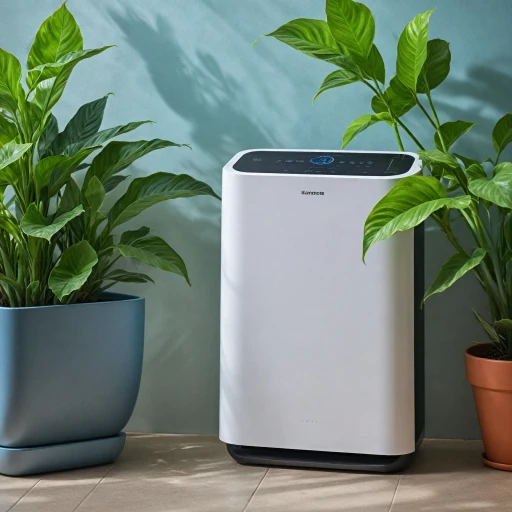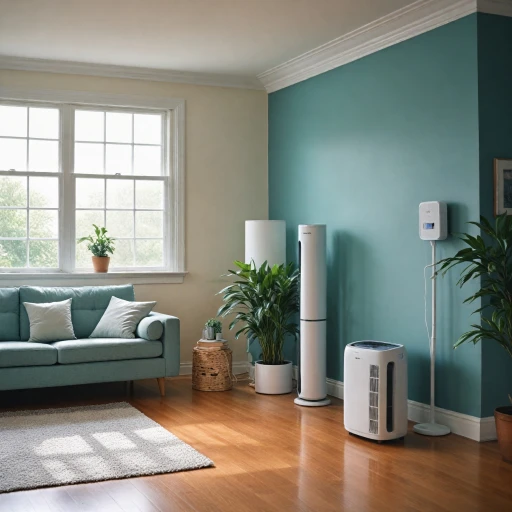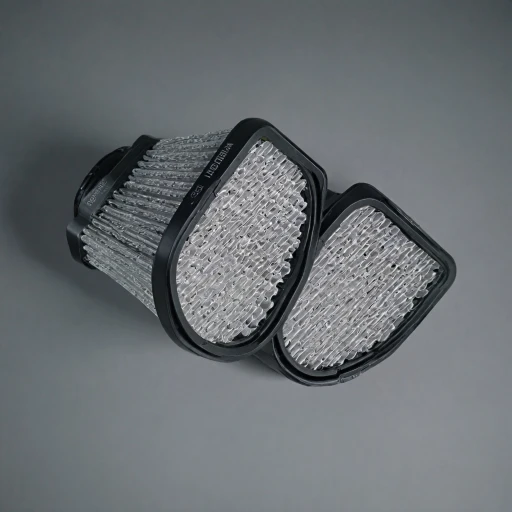
The Importance of Air Quality in Industrial Environments
The Critical Nature of Air Quality in Industrial Workspaces
In industrial environments, maintaining optimal air quality is not just a matter of compliance but a necessity for ensuring the health and safety of workers. The presence of pollutants, such as dust, fumes, and chemical vapors, can significantly impact the well-being of employees and the efficiency of operations. Industrial settings often utilize heavy machinery like compressors, diesel engines, and rotary screw air compressors, which can contribute to air contamination.
Air quality in these environments is influenced by various factors, including the type of machinery used, the materials processed, and the ventilation systems in place. For instance, engine-driven compressors and diesel CFM generators can emit harmful particulates and gases, necessitating robust air purification solutions. The challenge lies in effectively managing these emissions to create a safer workplace.
Moreover, poor air quality can lead to equipment malfunctions and increased maintenance costs. Dust and other particulates can clog machinery, reducing the efficiency of industrial duty tools and power systems. This underscores the importance of integrating air purifiers into industrial settings to not only protect human health but also to enhance operational efficiency.
Choosing the right air purification system is crucial, as it must be capable of handling the specific contaminants present in the environment. This involves understanding the CFM requirements and the type of pollutants that need to be filtered. For more insights on selecting the appropriate air purifier for specific industrial needs, you might want to explore resources on choosing the right air purifier.
How Air Purifiers Work in Industrial Settings
Mechanisms Behind Industrial Air Purification
Industrial settings often present unique air quality challenges due to the variety of pollutants emitted during operations. The implementation of air purifiers in such environments requires an understanding of how these devices operate to effectively mitigate pollution risks. One key aspect involves the capacity of air purifiers to handle large volumes of air, often measured in cubic feet per minute (CFM). Industrial air purifiers are designed to process significant CFM levels, essential for spaces where pollutants like diesel engine emissions, rotary machinery byproducts, and compressor residue accumulate. This requires robust systems equipped with advanced filters, often HEPA or activated carbon, to trap particulate matter and volatile organic compounds. Incorporating air purifiers into industrial settings also means considering the integration with existing equipment such as compressor generators, diesel systems, or engine-driven tools. This is vital for facilities using machinery such as piston air compressors, screw compressors, and generator welders which contribute to airborne pollutants. Additionally, the air purification process can involve multiple stages to ensure comprehensive coverage. This includes pre-filters for larger particulates and successive filtration layers to polish the air to cleaner standards. Some purifiers feature oil-free systems or have specifications tailored for open frame scenarios, making them versatile for a range of air compression needs, whether linked to a cfm gas setup or a screw air configuration. For a deeper dive into why air purification is essential, especially in high-demand environments like Dubai, further considerations and strategies can be explored at is an air purifier necessary in Dubai. As industrial sectors continue to evolve, understanding the operational intricacies of air purifiers ensures that environmental safety measures are both effective and sustainable.Choosing the Right Air Purifier for Industrial Use
Factors to Consider When Selecting Air Purifiers for Industrial Use
Choosing the right air purifier for industrial environments is crucial given the specific air quality challenges faced in such settings. With numerous options available, understanding the unique needs of your workspace is essential.
Industrial settings typically require air purifiers that can handle high-capacity air filtration. They need to be robust enough to manage contaminants like dust, smoke, and harmful gases often present due to equipment like rotary screw compressors, diesel engines, and generator welders. Here are some key considerations when selecting the ideal air purifier for industrial use:
- CFM (Cubic Feet per Minute): Ensure the air purifier has a high CFM rating to efficiently circulate and filter large volumes of air. This metric indicates how much air can be purified in a given time, which is crucial for maintaining air quality in large spaces.
- Type of Filtration System: Depending on the pollutants prevalent in your environment, choosing between hepa, activated carbon, or a combination of filters is important. For instance, in places with significant gas emissions, carbon filters are necessary to eliminate odors and harmful chemicals.
- Power Source Compatibility: Industrial settings require air purifiers compatible with existing power systems. Whether it's an electric driven, diesel, or gas-powered system, ensure the purifier operates efficiently under these conditions.
- Durability and Duty Cycle: Find a unit designed for industrial duty, capable of withstanding harsh environments and extended use. The durability of components, like those in open frame and screw compressors, is vital for prolonged reliability.
- Portability and Installation: For dynamic industrial sites, consider portable options that are easy to move and install (refer to the installation guide to ensure proper setup).
Assessing these features ensures the chosen air purifier will meet the high demands of industrial workspaces, contributing to a healthier environment for workers while maintaining operational efficiency. Proper selection and installation prevent operational disruptions and maintain compliance with air quality regulations.
Benefits of Using Air Purifiers in Industrial Workspaces
Advantages of Air Purifiers in Industrial Settings
Industries are constantly striving to enhance workplace safety and productivity. Implementing air purifiers is one effective measure to achieve this. Air purifiers in industrial environments have become indispensable, offering numerous advantages:- Improved Air Quality: Industrial settings often deal with various pollutants and harmful particles. Air purifiers ensure that the air remains clean, providing a safer working environment. This is crucial for industries employing machinery like diesel engines, compressors, and generator welders, where emissions can affect air quality.
- Enhanced Equipment Performance: Dust and dirt can clog and damage machinery such as rotary screws and industrial duty compressors. By keeping the air clean, equipment efficiency is maintained, and the risk of frequent breakdowns is minimized. This is particularly important for tools like engine-driven air compressors and screw air systems.
- Health Benefits: Clean air reduces the risk of respiratory issues among employees. This directly contributes to lower absenteeism and improved overall worker well-being.
- Energy Efficiency: High-efficiency models, such as open-frame designs and oil-free systems, offer maximum filtration with minimal energy consumption. This can be a critical factor for industrial entities looking to manage power system costs effectively.
- Versatility: Industrial air purifiers cater to diverse operational needs. Whether it's a portable air purifier for smaller spaces or a large-scale installation guide for comprehensive air purification, the versatility of these systems makes them a go-to solution for industrial applications.
Challenges in Implementing Air Purifiers in Industrial Settings
Overcoming Hurdles: Setting Up Air Purifiers in Industrial Environments
Implementing air purifiers in industrial settings comes with its own set of challenges. Here, we address some key obstacles that businesses might face when integrating these systems.- Infrastructure Compatibility: Industrial environments are varied, and matching air purifiers to existing power and space constraints is crucial. Some factories may need compressor-powered units, including rotary screw compressors, to maintain a high cfm diesel capacity without disturbing ongoing operations.
- Installation Complexity: Navigating the installation guide of industrial air purification systems can be daunting as they often need to work harmoniously with compressors and compressor generators. Whether you're incorporating an open frame or a screw compressor system, following a meticulous installation guide can ease the process.
- Maintaining Efficiency: Balancing capacity and efficiency is a critical aspect of using air purifiers. Factories using industrial-duty air tools or gas-powered generators must account for varying cfm levels, whether it's cfm diesel or cfm gas, to sustain optimal compressor function and seamless air purification.
- Cost Implications: Air purifiers, especially those powered by engine-driven or electric systems, can be expensive. The initial investment can stretch budgets, but the long-term benefits of cleaner air often justify the expense. Considering options like portable and static systems can help manage costs.
- Regular Maintenance: Ensuring the longevity and performance of air purifiers requires consistent maintenance, such as monitoring oil-free systems and ensuring piston air compressors are in top condition. Regular checks can mitigate breakdowns and optimize power system efficiency.
- Noise Management: Industrial environments can already be noisy, and additional equipment, like diesel compressors or generator welders, may exacerbate this. Selecting low-noise models can diminish the auditory impact on the workspace.
Future Trends in Industrial Air Purification
Anticipating the Future of Air Purification in Industries
The evolution of air purification in industrial settings will be shaped by several emerging trends. As industries continue to prioritize worker health and environmental responsibility, air purifiers will play an increasingly critical role. Looking ahead, here are a few key trends expected to influence industrial air purification:- Advanced Filtration Technologies: Future air purifiers will likely incorporate advanced filtration systems that provide higher levels of air cleanliness. This could include innovations in rotary systems and specialized filters that better capture compressed air contaminants.
- Integration with Industrial Equipment: With the advancement of technology, integration with industrial machinery such as diesel engines, screw air compressors, and generator welders could become more prevalent. This integration might enhance the overall power system efficiency while maintaining air quality.
- Energy Efficiency Focus: In line with global energy-saving initiatives, future air purifiers could feature more energy-efficient designs and systems that align with the needs of industrial settings. These systems may incorporate electric or engine-driven compressors that optimize energy use.
- Smart Air Purification Systems: The development of smart air systems that adjust their operation according to detected air quality changes will likely gain momentum. Such systems would be able to optimize filtration stages automatically for varying industrial duty conditions.
- Portable and Modular Units: The demand for portable air purifiers capable of being easily moved and adapted within industrial sites is expected to grow. Open frame designs and portable installation guides will support businesses seeking flexible solutions.

